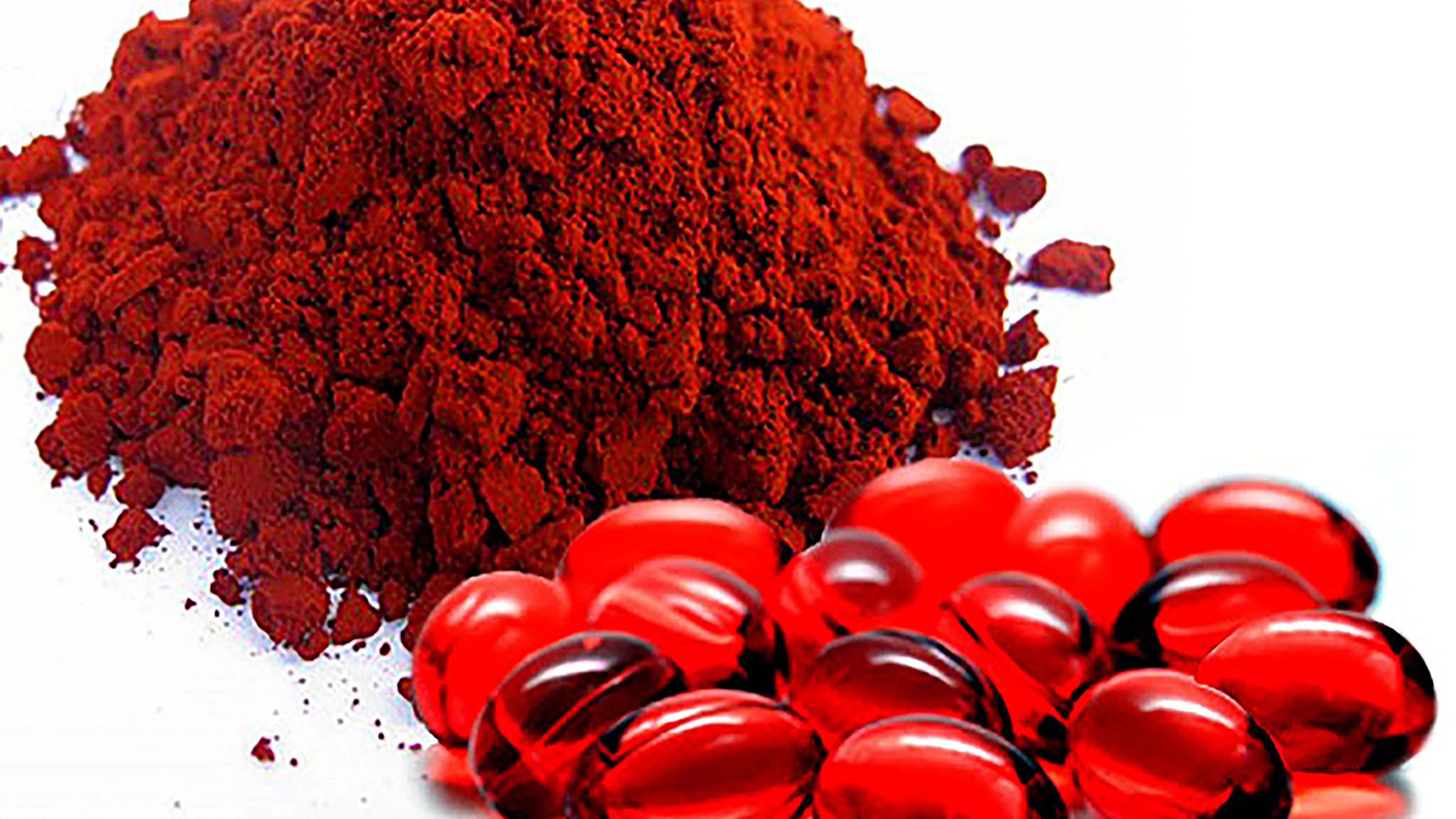Astaxanthin and Its Immunomodulatory Effects: Boosting the Immune System for Athletes and Beyond
May 13, 2023
Introduction
Astaxanthin, a naturally occurring carotenoid found in microalgae, krill, and other marine life, has gained considerable attention in recent years due to its potential health benefits. This powerful antioxidant has been reported to possess various biological effects, including anti-inflammatory, anti-cancer, and neuroprotective properties[1]. Among these benefits, the immunomodulatory effects of astaxanthin are particularly noteworthy, as they can impact the immune system, improve the body's resilience, and support overall health. In this blog, we will delve into the details of astaxanthin's influence on the immune system, exploring the available data on dosing, clinical trials, and its potential benefits for both athletes and the general population.
Astaxanthin Dosing
Astaxanthin's immunomodulatory effects have been investigated in several preclinical and clinical studies. Although there is no standardized dose for astaxanthin, research suggests that doses ranging from 4 to 12 mg per day are well-tolerated and can provide significant health benefits[2]. In a randomized, double-blind, placebo-controlled study, subjects received 0, 2, or 8 mg of astaxanthin daily for eight weeks. The study reported that supplementation with 8 mg of astaxanthin significantly enhanced the immune response and reduced DNA damage in lymphocytes[3].
Clinical Trials on Immune Parameters
Numerous clinical trials have assessed astaxanthin's effects on immune parameters. In a study involving 42 healthy female participants, astaxanthin supplementation (12 mg daily) for eight weeks resulted in a significant increase in natural killer (NK) cell cytotoxic activity and a decrease in DNA damage[4]. Another trial involving middle-aged and elderly subjects showed that 12 mg of astaxanthin per day for eight weeks led to improvements in immune markers, including increased lymphocyte proliferation, enhanced NK cell activity, and increased levels of interleukin-2 (IL-2), a cytokine crucial for immune regulation[5].
Effects of Astaxanthin on Immune System and Related Parameters
Astaxanthin's immunomodulatory effects can be attributed to its powerful antioxidant and anti-inflammatory properties. By scavenging reactive oxygen species (ROS) and inhibiting pro-inflammatory cytokines such as tumor necrosis factor-alpha (TNF-α) and interleukin-6 (IL-6), astaxanthin helps maintain a balanced immune response[6]. This balance is essential for optimal immune function, as excessive inflammation can lead to tissue damage and impaired immune defenses. Additionally, astaxanthin has been reported to enhance the function of immune cells like NK cells, T cells, and B cells, further bolstering the body's ability to fight off infections and other threats[7].
Value in Athletes and Everyone Else
Astaxanthin's immunomodulatory effects are especially valuable for athletes, who often experience increased oxidative stress and inflammation due to strenuous exercise. Research has shown that astaxanthin supplementation can reduce exercise-induced muscle damage, improve endurance, and enhance recovery[8]. Moreover, astaxanthin's ability to support the immune system can help athletes maintain optimal health and performance during periods of intense training or competition[9].
However, the benefits of astaxanthin are not limited to athletes. The general population can also benefit from astaxanthin's immune-boosting properties, especially as we age or face environmental stressors that can weaken the immune system. By modulating the immune response and reducing inflammation, astaxanthin can contribute to overall health, resilience, and well-being for everyone. Furthermore, astaxanthin's antioxidant and anti-inflammatory effects can help protect against chronic diseases, such as cardiovascular disease, diabetes, and certain cancers, which are often associated with increased oxidative stress and inflammation[10].
Concluding Thoughts
Astaxanthin holds great promise as a natural immunomodulatory agent, with potential benefits for both athletes and the general population. Its antioxidant and anti-inflammatory properties can help maintain a balanced immune response, support overall health, and reduce the risk of chronic diseases. As research continues to uncover the various health benefits of astaxanthin, it is becoming increasingly clear that this powerful carotenoid deserves a place in our daily supplementation regimen.
In summary, astaxanthin offers a range of immunomodulatory benefits for both athletes and the general population. Its ability to reduce inflammation, promote a balanced immune response, and protect against oxidative stress makes it an attractive supplement for overall health and well-being. Future research may continue to reveal even more health benefits of this powerful carotenoid, solidifying its place in our daily health routines.
References
[1] Fakhri, S., Abbaszadeh, F., Dargahi, L., & Jorjani, M. (2018). Astaxanthin: A mechanistic review on its biological activities and health benefits. Pharmacological Research, 136, 1-20.
[2] Kidd, P. (2011). Astaxanthin, cell membrane nutrient with diverse clinical benefits and anti-aging potential. Alternative Medicine Review, 16(4), 355-364.
[3] Park, J. S., Chyun, J. H., Kim, Y. K., Line, L. L., & Chew, B. P. (2010). Astaxanthin decreased oxidative stress and inflammation and enhanced immune response in humans. Nutrition & Metabolism, 7(1), 18.
[4] Choi, H. D., Youn, Y. K., & Shin, W. G. (2011). Positive effects of astaxanthin on lipid profiles and oxidative stress in overweight subjects. Plant Foods for Human Nutrition, 66(4), 363-369.
[5] Nakagawa, K., Kiko, T., Miyazawa, T., Carpentero Burdeos, G., Kimura, F., Satoh, A., & Miyazawa, T. (2010). Antioxidant effect of astaxanthin on phospholipid peroxidation in human erythrocytes. British Journal of Nutrition, 104(11), 1565-1570.
[6] Ohgami, K., Shiratori, K., Kotake, S., Nishida, T., Mizuki, N., Yazawa, K., & Ohno, S. (2003). Effects of astaxanthin on lipopolysaccharide-induced inflammation in vitro and in vivo. Investigative Ophthalmology & Visual Science, 44(6), 2694-2701.
[7] Barros, M. P., Poppe, S. C., & Bondan, E. F. (2014). Neuroprotective properties of the marine carotenoid astaxanthin and omega-3 fatty acids, and perspectives for the natural combination of both in krill oil. Nutrients, 6(3), 1293-1317.
[8] Djordjevic, B., Baralic, I., Kotur-Stevuljevic, J., Stefanovic, A., Ivanisevic, J., Radivojevic, N., ... & Dikic, N. (2012). Effect of astaxanthin supplementation on muscle damage and oxidative stress markers in elite young soccer players. Journal of Sports Medicine and Physical Fitness, 52(4), 382-392.
[9] Earnest, C. P., Lupo, M., White, K. M., & Church, T. S. (2011). Effect of astaxanthin on cycling time trial performance. International Journal of Sports Medicine, 32(11), 882-888.
[10] Pashkow, F. J., Watumull, D. G., & Campbell, C. L. (2008). Astaxanthin: a novel potential treatment for oxidative stress and inflammation in cardiovascular disease. American Journal of Cardiology, 101(10A), 58D-68D.
